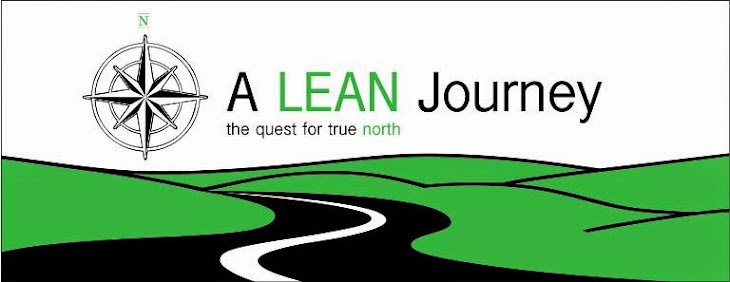On Fridays I will post a Lean related Quote. Throughout our lifetimes many people touch our lives and leave us with words of wisdom. These can both be a source of new learning and also a point to pause and reflect upon lessons we have learned. Within Lean active learning is an important aspect on this journey because without learning we can not improve.
Many times I find a quote and write about how the quote teaches some Lean lesson. But in this case I have a lesson for which I found a quote. I’ll talk a little more about towards the end.
A family member of mine works at a hospital that is just starting their Lean transformation. They have been at this organization for about 25 years in a traditional setting. So this transformation is a big change. My family member volunteered to get involved early on in the Lean training and initiatives. I would like to think that I helped to create this curiosity with all my talk about Lean. Nonetheless in a conversation the other day he was telling me about his first project. So coming out of some Kaizen event training the teacher wants to see the student apply the training. This is what most of us would expect. Here comes the twist. They want to see an improvement of $100,000. My simple response was that is not Lean more L.A.M.E. (Lean As Misguidedly Executed). Now I can understand that the leaders want to show that Lean will work and that obviously in the beginning these types of improvements are possible but this is not sustainable.
In the spirit of doing better, the smallest ideas are likely to be the easiest to adopt and implement. These improvements are sometimes called Point or Mini Kaizen. Making one small change is both rewarding to the person making the change and if communicated to others can lead to a widespread adoption of the improvement and the possibility that someone will improve on what has already been improved. There’s no telling what might occur if this were the everyday habit of all team members.
One of the most counter intuitive facts about small ideas is that they can actually provide a business with more sustainable competitive advantages than big ideas. The bigger the ideas, the more likely competitors will copy or counter them. If new ideas affect the company’s products or services, they’re directly visible and often widely advertised. And even if they involve behind-the-scenes improvements–say, to a major system or process–they’re often copied just as quickly. That’s because big, internal initiatives typically require outside sources, such as suppliers, contractors, and consultants, who sell their products and services to other companies, too. Small ideas, on the other hand, are much less likely to migrate to competitors–and even if they do, they’re often too specific to be useful. Because most small ideas remain proprietary, large numbers of them can accumulate into a big, competitive advantage that is sustainable. That edge often means the difference between success and failure.
In a Lean enterprise a strategy of making small, incremental improvements every day, rather than trying to find a monumental improvement once or twice a year equates to a colossal competitive advantage over time and competitors cannot copy these compounded small improvements.
Now back to the quote. While trying to find a quote to embody this thinking I came across this quote by Helen Keller. It expresses the importance of being modest and courteously respectful in our work. Greatness comes not from from a large effort of a few but rather from many tiny efforts from everyone. Helen Keller may not have been a Lean thinker but she certainly reflects Lean thinking in this phrase.
Stay connect to A Lean Journey on our Facebook page or LinkedIn group.
Follow me on Twitter or connect with me on Linkedin.
You can also subscribe to this feed or email to stay updated on all posts.
 A Lean Journey
A Lean Journey 



Leave a Comment
Your email address will not be published. Required fields are marked with *